Who Benefits From IPFS?

Archivists
IPFS enables deduplication, clustered persistence and performance for data security and safety.

Online Service Providers
You can save bandwidth by storing and distributing data with IPFS, by retrieving data from multiple peers at once.

Research and HPC
IPFS is optimal for large, distributed datasets with low-latency and decentralised data locality between nodes.

Blockchain Development
IPFS’s content addressing structure allows you to store large files off-chain and place permanent links in transactions, making content secure and permanent.

Remote/Offline Users
IPFS has a peer-to-peer nature which allows users to access data independent of their connectivity or latency issues.
2U, 12 Bay JBOD (Direct Attached) Storage
- Form Factor:
- 2U
- Drive Size:
- 3.5" Storage Servers
- Drive Bays:
- 12 Drive Bays
- Storage Capacity:
- 240TB
3U, 16 Bay (JBOD) Direct Attached Storage
- Form Factor:
- 3U
- Drive Size:
- 3.5" Storage Servers
- Drive Bays:
- 16 Drive Bays
- Storage Capacity:
- 320TB
4U, 24 Bay JBOD (Direct Attached) Storage
- Form Factor:
- 4U
- Drive Size:
- 3.5" Storage Servers
- Drive Bays:
- 24 Drive Bays
- Storage Capacity:
- 480TB
2U, 24 Bay JBOD (Direct Attached) Storage
- Form Factor:
- 2U
- Drive Size:
- 2.5" Storage Servers
- Drive Bays:
- 24 Drive Bays
- Storage Capacity:
- 360TB
4U, 24 Bay JBOD (DAS) Direct Attached Storage - Dual Controller
- Form Factor:
- 4U
- Drive Size:
- 3.5" Storage Servers
- Drive Bays:
- 24 Drive Bays
- Storage Capacity:
- 480TB
4U, 36 Bay JBOD - (Direct Attached) Storage
- Form Factor:
- 4U
- Drive Size:
- 3.5" Storage Servers
- Drive Bays:
- 36 Drive Bays
- Storage Capacity:
- 720TB
4U, 44 Bay JBOD (Direct Attached) Storage
- Form Factor:
- 4U
- Drive Size:
- 3.5" Storage Servers
- Drive Bays:
- 44 Drive Bays
- Storage Capacity:
- 880TB
The Next Generation Hybrid Platform for Software-Defined Storage
- Form Factor:
- 4U
- Drive Size:
- 3.5" Storage Servers
- Drive Bays:
- 102 Drive Bays
- Storage Capacity:
- 2PB
4U, 60 Bay JBOD (DAS) Direct Attached Storage - Dual Controller 12GB/SAS
- Form Factor:
- 4U
- Drive Size:
- 3.5" Storage Servers
- Drive Bays:
- 60 Drive bays
- Storage Capacity:
- 1.2PB
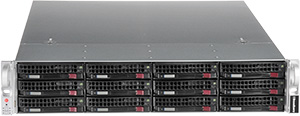
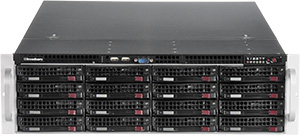
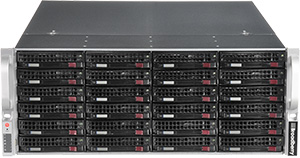

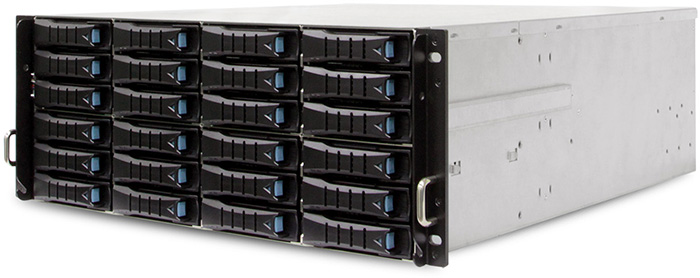
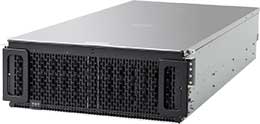
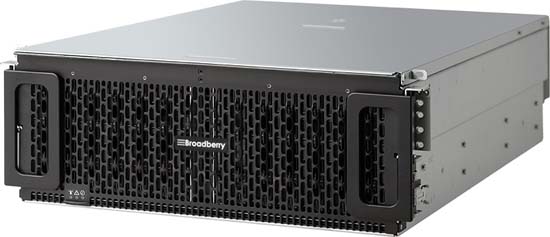

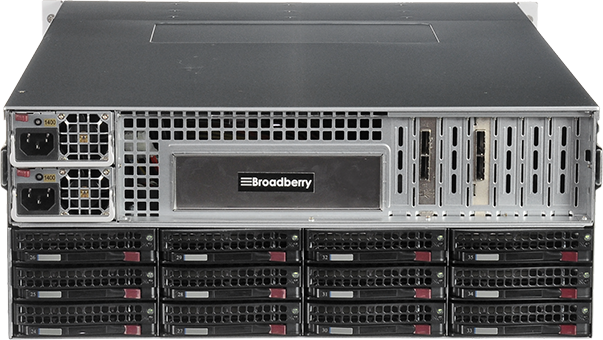






 Our Rigorous Testing
Our Rigorous Testing Un-Equaled Flexibility
Un-Equaled Flexibility


 Call Our UK Sales Team Now
Call Our UK Sales Team Now